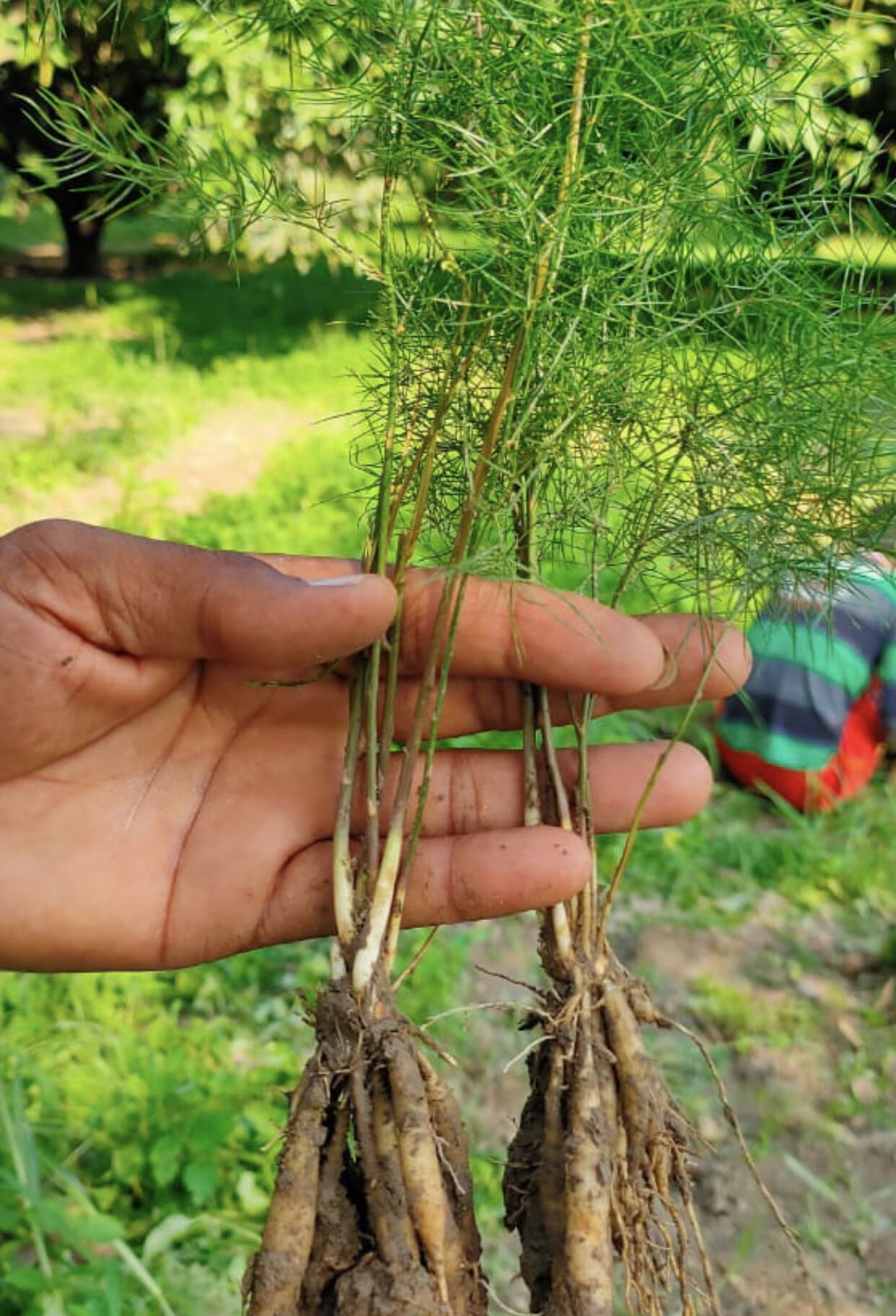Ayurveda, the ancient Indian system of medicine, is a treasure trove of holistic healing wisdom. Among its many herbal wonders, Shatavari (Asparagus racemosus) stands out as a revered herb that has been cherished for centuries. Often referred to as the “Queen of Herbs” or “She Who Possesses a Hundred Husbands,” Shatavari holds a special place in Ayurveda, primarily for its profound impact on women’s health. In this blog post, we’ll explore the rich history and the significance of Shatavari in Ayurveda, its holistic healing properties, and its relevance beyond women’s well-being.
The Historical Roots of Shatavari:
Shatavari’s name itself offers a glimpse into its historical significance. In Sanskrit, “shat” means “hundred,” and “vari” means “husband.” This unique name suggests its capacity to provide a hundred kinds of benefits, particularly in the realm of women’s health. Shatavari’s roots trace back to the Indian subcontinent, where it thrives in tropical regions, including Sri Lanka and the Himalayas.
Nurturing Women’s Health:
One of Shatavari’s primary roles in Ayurveda is as a potent rejuvenative tonic for women. It is known to support women’s health throughout their lives, from menarche to menopause and beyond. Here’s how Shatavari contributes to women’s well-being:
- Hormonal Balance: Shatavari is believed to have a natural phytoestrogenic effect, making it a valuable ally in maintaining hormonal balance. This quality can help alleviate symptoms of conditions like PMS, menopause, and irregular menstrual cycles.
- Reproductive Health: Shatavari is traditionally used to promote fertility and overall reproductive health. It may help regulate menstrual cycles, improve the quality of cervical mucus, and support the health of the female reproductive organs.
- Lactation Support: For lactating mothers, Shatavari is a well-known galactagogue, a substance that enhances the production and quality of breast milk. It can be particularly beneficial during the postpartum period.
- Stress Reduction: Shatavari’s adaptogenic properties assist in reducing stress and calming the mind, which can be crucial for women juggling various roles and responsibilities.
Beyond Women’s Health:
While Shatavari is celebrated for its contributions to women’s health, its benefits extend to all genders and ages. Here’s how Shatavari can support overall well-being:
- Digestive Health: Shatavari’s cooling and soothing properties make it effective in supporting digestive health. It can help alleviate issues like acidity, ulcers, and indigestion.
- Immune Booster: Shatavari contains bioactive compounds with potent immune-boosting effects. Regular consumption can help enhance the body’s natural defense mechanisms.
- Anti-Inflammatory Properties: Shatavari’s anti-inflammatory compounds make it valuable in addressing conditions related to excess inflammation, such as arthritis.
- Longevity and Vitality: Ayurveda considers Shatavari as a rasayana, a substance that promotes longevity and vitality. It’s believed to slow down the aging process and improve overall health.
Conclusion:
Shatavari’s enduring presence in Ayurveda is a testament to its remarkable healing properties. From its role in women’s health to its broader applications in reducing stress, supporting digestion, and enhancing overall vitality, Shatavari has earned its place as a versatile and cherished herb. Whether you’re seeking balance in your hormones or aiming to nurture your overall well-being, Shatavari, the “Queen of Herbs,” has much to offer in the journey to holistic health.

